Recherche avancée

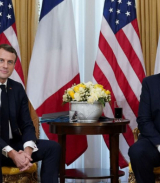 |
Qui a plus « besoin de l’OTAN » ? La France ou… les USA?
IVERIS
12 déc, 2019
Coutumier des déclarations fracassantes mais pas forcément étayées par les faits, le président Trump en a placé deux d’un coup, au dernier sommet de l’Alliance, lors d’une conférence de presse : « Personne n’a besoin de l’OTAN plus que la France (…) Les Etats-Unis en tirent vraiment le moins de bénéfices ». Deux inepties qui méritent que l’on s’y arrête.
|
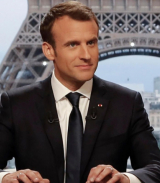 |
Sur la Syrie et Trump, le président Macron dans l’illusion de l’influence
Brèves, 16 avril, 2018
Quelques secondes dans un entretien télévisé de plus de deux heures et demie ont propulsé le président de la République à la une de la presse étrangère, comme celui qui dit avoir influencé la politique du président Trump en Syrie. A quatre reprises il y répétait que « nous l’avons convaincu » de rester militairement engagé en Syrie, et de limiter les frappes aériennes aux capacités chimiques du régime. Par ces propos publics, le président français n’a pas seulement commis une gaffe. Il a aussi, et surtout, révélé d’être tenté par une approche pour le moins naïve des relations avec les Etats-Unis, laquelle avait déjà, à d’innombrables fois, conduit les Britanniques dans l’impasse.
|
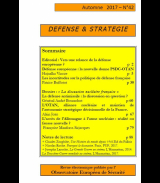 |
Défense européenne : la nouvelle donne PSDC-OTAN
Défense & Stratégie, Automne 2017, n°42, pp. 5-29
05 déc, 2017
Les turbulences dans le ciel européen et transatlantique durant l’année qui vient de s’écouler n’ont évidemment pas été sans incidence sur la cohabitation entre la Politique de sécurité et de défense commune (PSDC) de l’Union Européenne (UE) et l’Alliance atlantique. Les langues se délient, les initiatives se multiplient, de nouvelles perspectives semblent s’ouvrir et provoquent des contrecoups puissants. Quoi qu’il en soit, l’issue va dépendre, une fois de plus, des choix et de la détermination de la France.
|
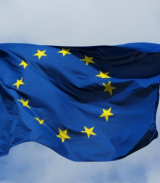 |
Drapeau européen : symbole d’une « allégeance » ou d’un « lien »?
Notes d’actualité, 30 nov, 2017
Au sommet de mi-octobre de l’UE à Bruxelles, le président Macron s’est associé à la Déclaration n°52, dix ans après l’adoption du traité de Lisbonne où la France avait décidé de ne pas signer ladite déclaration.[1] Si le chef de l'Etat a fait le choix de revenir sur cette décision aujourd'hui, c’est avant tout en réponse à l’appel du leader de la France Insoumise, Jean-Luc Mélenchon, qui réclamait le retrait du drapeau européen à l’Assemblée nationale. Certes, la Déclaration n’est pas légalement contraignante, mais sa signature n’en devrait pas moins affirmer, d’après le Président,[2] « l’attachement » de la France aux symboles de la construction européenne. Sauf que la nature de cet attachement peut être très différente selon que l’on se réfère à la version française ou anglaise du texte originel.
|
 |
Le numéro d'équilibriste du président Macron
Lecture at the Princeton Committee of FPRI
26 oct, 2017
Au cours des cinq prochaines années, le principal défi dans le domaine intérieur sera le sentiment d'aliénation dont souffre une écrasante majorité de la population. Il vient d’un côté de la fracture entre gagnants et perdants de la globalisation et, de l’autre, des réactions face à ce qui est largement perçu comme une présence de plus en plus vindicative de l’islam sur le territoire national. Sur le plan européen, il existe, certes, une fenêtre d'opportunité sans précédent pour le projet d’une Europe protectrice, stratégique et autonome, défendu par la France depuis toujours, mais la seule solution pour y parvenir reste la mise en œuvre, enfin, de l’intégration à géométrie variable.
|
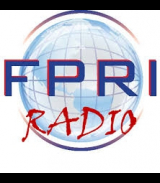 |
Entretien au lendemain des élections allemandes
FPRI Radio
28 sept, 2017
J'ai eu le plaisir de discuter des résultats des élections allemandes, dans un contexte européen plus large, avec Ronald Granieri et Jeremy Black au Foreign Policy Research Institute. Pour écouter la conversation en anglais, veuillez cliquer ici.
|
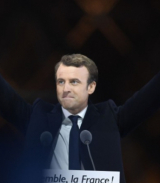 |
La France du président Macron : avis de tempête à l’intérieur et croisée des chemins à l’extérieur
Foreign Policy Research Institute, E-Notes
10 mai, 2017
« On ne sort de l'ambiguïté qu'à son détriment », cette maxime souvent répétée par l’ancien président François Mitterrand sonne comme une mise en garde prémonitoire au lendemain de l’élection d’Emmanuel Macron en France. En effet, les inévitables clarifications risquent d’être particulièrement compliquées pour un président dont la tournure « mais en même temps » est devenu comme une marque de fabrique de sa campagne.
|
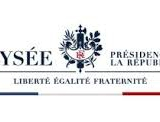 |
La France: l'indépendance malgré tout
Brèves, 02 janv, 2017
« Face aux puissances, les anciennes comme les nouvelles, la France doit réaffirmer son indépendance (…) peu de pays ont par leur défense, c'est-à-dire leur armée et la politique étrangère, la capacité de décider souverainement. Nous l'avons. Et nous devons tout faire pour préserver cette liberté stratégique ».[1] Quoi que l’on pense du reste du discours (ou de la politique menée par le président Hollande, et par le président Sarkozy avant lui), une chose est certaine : c’est cette indépendance qui donne, et donnera en avril-mai prochains, un véritable sens au vote des électeurs français.
|
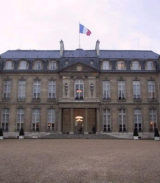 |
L’annonce de non-candidature de F. Hollande
Brèves, 01 déc, 2016
Le président Hollande ne sera donc pas candidat à sa réélection (1) – peut-être ça lui laissera du temps pour faire quelque chose qui ait du sens? Comme s'occuper de la défense européenne, par exemple?
|
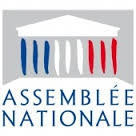 |
La France, quel gardien du temple pour l'Europe de la défense?
Notes d’actualité, 20 nov, 2014
« C’est la PSDC – ou vivre dans un monde dirigé par d’autres », ce constat limpide fut la réplique de l’ancien patron de l’Agence européenne de défense, Nick Witney, à un article qui préconisait d’oublier la PSDC (la politique de sécurité et de défense commune de l’UE) et de nous en remettre plutôt à la seule Alliance atlantique. Le constat est à moitié exact. L’enjeu, c’est en effet la sauvegarde (ou pas) de notre liberté de choix. Mais faire de la PSDC le dépositaire de cette ambition, ce serait ignorer profondément son évolution.
|
 |
Le « retour » de la France dans l'OTAN : fausses raisons et vraies conséquences
La Lettre Sentinel n°51, avril 2009
08 avril, 2009
Saluée (ou vilipendée, c’est selon) comme un « retour au bercail », la réintégration des structures militaires intégrées par la France finira-t-elle par faire exploser l’Alliance ? La question n’est paradoxale que d’apparence. A contre-courant des évolutions géopolitiques, basée sur un argumentaire dont la vacuité se manifestera au grand jour avant même qu’on n’ait commencé à changer les enseignes des bureaux et réimprimé les cartes de visite, cette décision (formellement pas encore prise) est surtout perçue et interprétée de manière diamétralement opposée par les protagonistes. D’où les attentes contradictoires, pour ne pas dire incompatibles, des deux côtés.
|
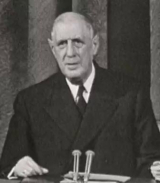 |
Le Général face à l OTAN: une analyse toujours actuelle
La Lettre Sentinel n°51, avril 2009
01 avril, 2009
Une des formules récurrentes dans les discussions sur le plein retour de la France à l’OTAN, quoique admise de tous côtés comme une évidence, mérite néanmoins que l’on s’y arrête un instant. Il s’agit du contexte géostratégique qui aurait subi, paraît-il, d’énormes changements. De prime abord, c’est un truisme: l’URSS a disparu, la guerre froide est terminée, l’Europe de la Défense créée – si bien que le Général de Gaulle et ses chamailleries avec l’OTAN semblent résolument appartenir au passé. En réalité, aucune des mutations, certes indiscutables, de ces quarante dernières années n’est de nature à remettre en question le bien-fondé de la décision de 1966. A y regarder de plus près, on dirait plutôt qu’elles le confirment.
|
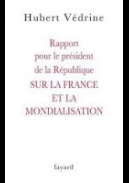 |
La France, l’OTAN et l’Occident – à la marge du rapport Védrine
La Lettre Sentinel n°47, octobre 2007
31 oct, 2007
Dans son Rapport sur la France et la mondialisation, rédigé à la demande du Président de la République, Hubert Védrine aborde la question de l’OTAN à l’intérieur du chapitre consacré à « L’option atlantiste/occidentaliste ». Fort à propos, l’ex-ministre des Affaires étrangères distingue cette dernière de « la politique normale d’amitié et de coopération avec les Etats-Unis », et la décrit comme « une réorientation en profondeur » qui s’inscrit dans le schéma du choc des civilisations : « Menacés, les Occidentaux devraient se serrer les coudes ».
|
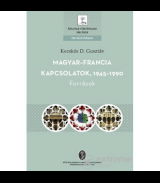 |
A la charnière de deux époques
Magyar-francia kapcsolatok 1945-1990 (G. Kecskés)
20 mars, 2006
Commentaire de document au sujet de la visite à Budapest du président de la Commission européenne, Jacques Delors et du ministre français des Affaires étrangères, Roland Dumas, les 16-17 novembre 1989
|
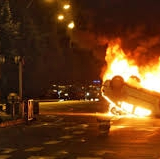 |
L'Europe : chronique d’un déclin annoncé (démographie, immigration, intégration)
Népszabadság Online
23 janv, 2006
C’est toujours un spectacle édifiant de voir les dirigeants européens - maîtres dans l’art du démenti, du camouflage et de la mise sous tapis des dossiers délicats - lorsqu’ils se retrouvent le dos au mur. Tel était le cas lors des émeutes en France, notamment face aux avertissements plutôt vigoureux traduisant les tensions internes des sociétés européennes.
|
 |
La conscience française de l'Europe
Népszabadság Online
27 mai, 2005
D’après Madelaine Albright, ex-Secrétaire d’Etat américain: « Pour comprendre l’Union européenne on doit être un génie – ou français ». En effet, la France constitue la clef-de-voûte de tout le projet européen. Un état de fait que, paradoxalement, les débats houleux autour du traité dit constitutionnel ne font que renforcer.
|
 |
Visions et contre-visions, ou sur les contradictions fondamentales des relations transatlantiques
Külügyi Szemle 2003/4
01 déc, 2003
La crise irakienne n’a fait que révéler au grand jour les tensions structurelles des relations euro-américaines, couvées depuis des décennies et devenues plus épineuses après la fin de la période bipolaire. Outre la pseudo-vision officielle et les visions d’occasion représentées par les inconséquences allemandes, les deux grandes visions, concurrentes l’une de l’autre, sur l’Europe, les relations transatlantiques et l’ordre international sont défendues par la Grande-Bretagne et la France.
|
 |
La remontrance de Chirac : aurait-il vraiment mieux fait de se taire ?
Journal Francophone de Budapest
05 mars, 2003
S’indignant des réprimandes adressées par le président français aux pays candidats – lesquels s’étaient alignés selon lui « trop rapidement » et d’une manière « irresponsable » sur la position américaine au sujet de l’Irak – la plupart des réactions internationales se délectaient à remarquer que c’est plutôt l’auteur de la fameuse phrase qui aurait « manqué une bonne occasion de se taire ».
|
|
 |
Les plus lus


|



